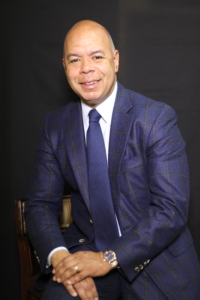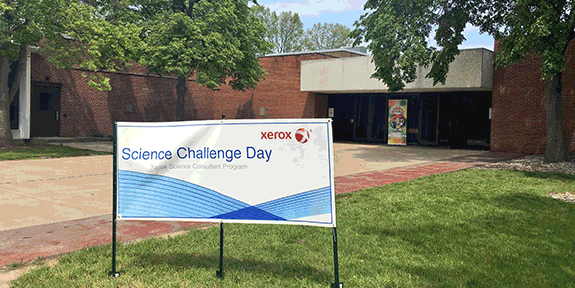(From the Editor: This article is the first in a three part series of excerpts from a speech Kevin Warren delivered at the Council of Independent Colleges’ 2017 Presidents Institute on Jan. 4, 2017. Kevin is Chief Commercial Officer of Xerox.)
By Kevin Warren
My job has many complexities, but my most important asset is actually very simple. It’s people. At the end of the day, people (our customers) make decisions and surrender long-term loyalty based on interactions with people. So to be successful as a corporation, we need to make sure we’re filling the seats with the most talented and passionate people.

Creating those talented and passionate people, well, that’s where education comes in. Education is the gift that keeps on giving to Corporate America – but we can be hard to shop for. The pace and rate of change is so dynamic that the technical skills and information students are studying today, could be outdated in less than 10 years. And, if, according to futurists, 60% of the best jobs in the next 10 years haven’t even been invented yet, how can college possibly prepare students to land and succeed in them?
What graduates have to offer the world has to be more than their chosen major or technical skill set. A well-rounded, liberal arts foundation is critical to navigating the change that characterizes today’s work environment – and the world surrounding it for that matter.
My view as to how to complement that liberal arts foundation is best modeled in what I call the “Success Triangle” – three factors for success that have become my criteria for filtering out the talented and passionate people I want filling the corporate seats.
- First, is Performance: This is the minimum qualifier – the rest of the triangle doesn’t really matter unless you can perform and deliver. Consistently. It’s also about the ability to solve problems and overcome obstacles.
- Next is Behavior: Corporations…governments…hospitals…are social institutions. We’re working with human beings. It’s about professionalism, working as a team, ability to handle bad news, resilience to recover from setbacks, giving credit vs. taking credit, and championing a “we” versus “me” mentality. This is no less important than performance – it’s about having emotional intelligence. People who do well on the first part of the triangle, often fail at this second part.
- The third part is Competency Development: This is about the commitment to continuously raising your game – and in today’s environment, being a life-long learner is more than a buzz word, it’s a survival skill. It’s about more than constantly updating your skills and knowledge (though that’s critical too), it’s about growing your professional worth…your brand…by being a student of life, of work, and of current and world events.
Performance as the minimum qualifier in business, likens to a degree. The minimum qualifier for more than 60 % of jobs in this post-recession economy is a college degree…and only 40% have it. We’re facing a supply and demand problem. There are more jobs being created than college graduates – 11 million more in the next decade, in fact, according to Georgetown University’s Center on Education and the Workforce.
To overcome this, it’s about changing the narrative – getting into communities and reaching high school students early about the value of a college education. Getting them to believe they have access…to that education and to the opportunities within this economy.
The most common methods are to:
- illustrate the continuing wage gap – they can earn ONE MILLION more dollars over a lifetime,
- demonstrate that a degree provides insulation against unemployment – Unemployment is 3% for college graduates vs 6% for high school graduates
- and present evidence that loan costs can be managed (use the above evidence that the investment is worthwhile, and when managed responsibly, most are paying $300/mo for college – a reasonable investment over time)
But I’m inspired by the examples that leverage tighter connectivity between education and the professional job market to grab students at a young age and motivate them with access to real opportunities. Like the work-study program at the Catholic network of schools, Cristo Rey.
Participating Cristo Rey students spend one day a week working an entry-level job at a local company. The salary from that job helps offset their private Catholic school tuition.
The students feel empowered to find a job they are interested in, work hard, prove themselves and understand their potential – all in a “safe space” where they are offered support, mentorship and networking opportunities for the future.
Impacting performance is also about providing completion support that reaches beyond academic and residential programs to foster and support the student’s whole self across the years they spend on campus.
It’s tying that space together with communication, mentoring, experiential opportunities, monitoring and alerts, and intervention as needed, to name a few. In my view, it’s more than establishing an academic success center or a peer mentoring program – it’s a deliberate effort to educate and nurture students across all dimensions – intellectual, social, civic, physical, moral, and spiritual…
…which is a good segue to the behavior part of the triangle. More on that tomorrow.




Great Article Kevin, and one that resonates well with me. I joined Xerox UK 22 years ago as a trainee, where Xerox enabled me to combine working and studying on a 2 year program. Sadly the trainee program disappeared some time ago, but we now have a very healthy ‘Apprenticeship scheme’ which is very similar.
As a manager, I’ve also benefited from managing many University students who look at market leading companies such as Xerox for their work experience section of their degree program. We have nearly 80 students each year on the Uxbridge campus, learning ‘on the job’, but also keeping the rest of us up to date with modern ways of thinking, new technologies and ways of working. Many of them return to Xerox once their studies are complete, and are welcomed back into the ‘Graduate Program’.
This is most definitely an audience we need to continue to embrace!
Look forward to reading parts 2 and 3. Thanks.
Thanks Rachel, for your supportive comments and for your efforts to inspire tighter connectivity between Xerox and our future workforce!
Inspiring article! It resonates well with a French initiative that has been running since last September by FCG, to engage students with the support of Xerox Partners and Adecco: the Sales Academy Xerox Partner (SaXp).
During one year, more than 20 students will learn how to become a successful SalesRep thanks to the joined efforts of 14 French concessionnaires, the Xerox Learning and Development team and the IGS Business School. These students will be graduated as Bachelor of Business Development by the end of September, and hopefully rewarded with a job offer for the most successful ones!